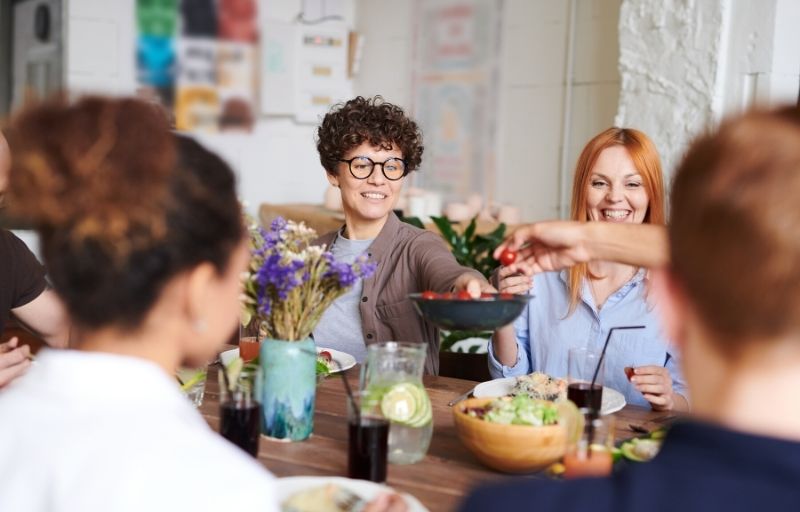We were never meant to do it alone
Take a minute to think back to some of the happiest moments in your life. Now, tell me – how many of them were you on your own for? Chances are, there weren’t many.

As lovely (and welcome) as solitude can be at times, especially for those of us who are more introverted, there’s no denying how important relationships are. It’s not just the big relationships either, like your partner or immediate family, smaller relationships with acquaintances, professionals and even strangers have an impact.
The role of social support in our happiness and well-being has been researched widely and you may be surprised to learn just how integral it is.
The importance of social support
Loneliness is a topic that’s talked about more and more, perhaps because we’ve learnt that it can be as bad for our health as smoking or obesity. It therefore makes sense that having a strong support network counters this effect.
There’s no question that social relationships are important for health. If you stack having few social relationships against other risk factors – like smoking and obesity – not being socially connected is as strong a risk factor for death.
Being connected with others has also been found to improve our resilience to stress. When studied by psychologists, social support is defined as: “acts that communicate caring; that validate the other’s words, feelings or actions; or that facilitate adaptive coping with problems through the provision of information, assistance, or tangible resources”.

To drill down deeper, here are some different types of social support:
Emotional social support – This is when someone listens to us, affirms our worth, validates our feelings and is there for us emotionally.
Informational social support – This is when someone shares advice with us or ideas of how to handle a certain challenge. This may include sharing experiences or signposting someone to professional support.
Tangible social support – This is when someone shares resources, which may be material or financial. This can include a loan of money, baby-sitting or helping us move house.
Belonging social support – This is when someone spends time with us, maybe within a group of friends, as social leisure.
Cultivating a strong support system
We’ve already highlighted how impactful our social connections can be, but how can we ensure our social support system is strong?
To start with, it’s important to recognise that you’re unlikely to get all of your social support needs met from one or two people alone. Re-read the different types of social support above, see where the gaps are in your system and consider how you can fill them.
You may want to start small by reaching out online. There are many online communities designed to connect you with like-minded people and share your experiences. You could also outsource your support and hire a professional. For example, if you’re lacking in the informational social support department, you may find it helpful to explore coaching and mentoring. Or, if it’s emotional social support you need right now, counselling may be an option.
The important thing to remember is that you do have these options. We were never meant to do it alone, and we don’t have to.

Find a coach dealing with Relationships
All coaches are verified professionals


